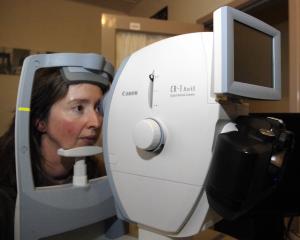It related to a reassessment of a man with Parkinson's disease which was carried out without the man's partner, who provides much of his care, being present.
Following investigation of the complaint by the health and disability commissioner, the board acknowledged this month the assessment was not completed satisfactorily.
Deputy health and disability commissioner (disability) Tania Thomas said needs assessment and service co-ordination agencies around the country would be advised they should make sufficient effort to ensure all the key people were present at the time of an assessment unless otherwise advised by the consumer.
If it was not possible to gather all together at the time sought by the assessor, consideration should be given to postponing the meeting.
Assessors would also be advised that they should complete all parts of the assessment document thoroughly with appropriate input from the consumer and the carer unless the consumer did not want this.
The quality of assessments should also be regularly monitored through external and internal procedures, Ms Thomas said.
The value of ongoing training would be emphasised to ensure that all staff, new and existing, understood the importance of involving the person with whom the consumer spent most of their time.
"This is something we have been pushing for a long time."
The case was unusual in that the health and disability commissioner used an expert adviser to comment on the case, something which had previously only been done in complaints involving health rather than disability issues, Ms Thomas said.
The adviser was Janice White, needs assessment and co-ordination national reviewer.
Ms Thomas said people should be aware that the service provided by needs assessors and needs assessment service co-ordinators did come under the jurisdiction of the health and disability commissioner.
In the case of the Otago complaint, the board acknowledged it did not complete the process and documentation for the assessment satisfactorily and that carer information was not included.
It agreed to provide ongoing training and development in needs assessment for all its needs assessors.
It also said it would be implementing the Ministry of Health's electronic assessment procedure in common with the rest of the country, which would be consistent.
Board chief executive support manager Cherie Wells advised, in a letter to the health and disability commissioner, the man would receive a reassessment including carer information "as soon as this can be scheduled".
The board had to "prioritise access to [needs assessment service co-ordinators] services currently while completing a recovery plan for disability support services".
(This reference is to the work needs assessors are doing in connection with reductions to the amount of housework help funded by the board).
The woman who made the complaint to the Health and Disability Commissioner has indicated she is unlikely to take up the reassessment offer because she does not believe it will address the issue of the appropriateness of the care being offered.











